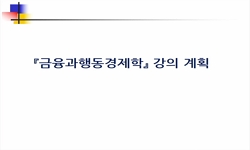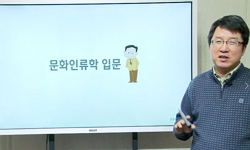윤리문화의 개념에는 세 가지 차원이 있다. 생활문화로서의 윤리문화, 결합체적사슬(syntagmatic chain)로서의 윤리문화, 계열체적 집합(paradigmatic set)으로서의 윤리문화가 그것이다. 이 중에서, ...
http://chineseinput.net/에서 pinyin(병음)방식으로 중국어를 변환할 수 있습니다.
변환된 중국어를 복사하여 사용하시면 됩니다.
- 中文 을 입력하시려면 zhongwen을 입력하시고 space를누르시면됩니다.
- 北京 을 입력하시려면 beijing을 입력하시고 space를 누르시면 됩니다.

제주의 의식주생활에 함의된 윤리적 문화문법 = Ethical Grammar of Culture Implied in Life of Food, Clothing, and Shelter of Jeju
한글로보기https://www.riss.kr/link?id=A102737634
- 저자
- 발행기관
- 학술지명
- 권호사항
-
발행연도
2014
-
작성언어
Korean
- 주제어
-
KDC
100
-
등재정보
KCI등재
-
자료형태
학술저널
- 발행기관 URL
-
수록면
333-365(33쪽)
-
KCI 피인용횟수
1
- DOI식별코드
- 제공처
-
0
상세조회 -
0
다운로드
부가정보
국문 초록 (Abstract)
윤리문화의 개념에는 세 가지 차원이 있다. 생활문화로서의 윤리문화, 결합체적사슬(syntagmatic chain)로서의 윤리문화, 계열체적 집합(paradigmatic set)으로서의 윤리문화가 그것이다. 이 중에서, 이 글은 계열체적 집합으로서의 윤리문화인제주인의 윤리적 문화문법을 탐색하였다. 문화문법은 어떠한 조치로도 쉽사리 변하지 않는 문화의 하드웨어(hardware)와 같다. 제주윤리문화의 패러다임을 파악하기 위해서는 문화문법을 낳은 조건적 요소들에 관한 광범위한 검토가 있어야 한다. ① 자연적?지리적 특성, ② 언어적인 특성, ③ 역사적 경험의 특성, ④ 의?식?주의 특성, ⑤ 친족구조의 특성, ⑥ 종교?신앙의 특성, ⑦ 인구학적 특성 등이 그것이다. 필자는 제주의 무속신화에 나타난 윤리적 문화문법을 탐구한 바 있고, 제주의 가족제도를 분석하여 효규범의 윤리문화를 검토한 적이 있다. 이 글에서는 기존 연구에서 얻은 가설을 바탕으로 의식주생활에 함의된 제주인의 윤리적 문화문법을 탐색하였다. 제주윤리문화의 패러다임은 평등성, 가족성, 현세성, 합리성, 온정성, 묘합성으로 요약된다. 제주의 무속신화에서 탐색된 이러한 문화문법들은 특정시기의 결합체적 사슬과 엮였던 시대인 가족제도와 의식주생활에서도 재생 반복하여 나타나고 있다.
다국어 초록 (Multilingual Abstract)
The concept of ethical culture has three kinds of dimensions in which there is an ethical culture as a living culture, syntagmatic chain, and paradigmatic set. From among these, this article explores the grammar of the culture of the local people in J...
The concept of ethical culture has three kinds of dimensions in which there is an ethical culture as a living culture, syntagmatic chain, and paradigmatic set. From among these, this article explores the grammar of the culture of the local people in Jeju. The grammar of culture is similar to the hardware of culture, which is difficult to change even if there is any action. To figure out the paradigm of Jeju`s ethical culture, conditional factors-the roots of the grammar of culture-should be examined extensively. They include natural and geographical characteristics, linguistic characteristics, historical experience, basic needs such as food, clothing, and shelter, relative structure, religion and faith, and demographical characteristics. The author has investigated the ethical grammar of culture in the shamanic mythology of Jeju, and reviewed the ethical culture of filial piety by analyzing the institution of the family in Jeju. Based on a hypothesis from existing research, this article explores locals` ethical grammar of culture implied in life in terms of food, clothing, and shelter. The paradigm of Jeju`s ethical culture may be summarized under some features including equality-oriented peculiarties, family-oriented peculiarties, temporal life-oriented peculiarties, rationality-oriented peculiarties, sympathy-oriented peculiarties, and mixture-oriented peculiarties. It has been shown that these grammars of culture, which were examined from the shamanic mythology of Jeju, are repeated both in the life of food, clothing, and shelter and the institution of the family of the time when they were interwined with the syntagmatic chain of a certain time.
참고문헌 (Reference)
1 정수복, "한국인의 문화적 문법" 생각의 나무 2007
2 신인철, "한국의 사회구조: 미분화 사회에서 부계사회로" 문덕사 1992
3 허흥식, "한국사상사대계" 한국정신문화연구원 1991
4 한국국민윤리학회, "한국민족정신 탐구" 1993
5 김동욱, "한국민속종합보고서 - 제주도편" 문화공보부 문화재관리국 1977
6 황혜성, "한국민속종합보고서 - 제주도편" 문화공보부 문화재관리국 1977
7 김정기, "한국민속종합보고서 - 제주도편" 문화공보부문화재관리국 1977
8 김형효, "한국문화의 진단과 21세기" 한국정신문화연구원 1994
9 최재석, "한국가족제도사연구" 일지사 1983
10 문정봉, "풍속무음(상·하)" 제주대 탐라문화연구소 1994
1 정수복, "한국인의 문화적 문법" 생각의 나무 2007
2 신인철, "한국의 사회구조: 미분화 사회에서 부계사회로" 문덕사 1992
3 허흥식, "한국사상사대계" 한국정신문화연구원 1991
4 한국국민윤리학회, "한국민족정신 탐구" 1993
5 김동욱, "한국민속종합보고서 - 제주도편" 문화공보부 문화재관리국 1977
6 황혜성, "한국민속종합보고서 - 제주도편" 문화공보부 문화재관리국 1977
7 김정기, "한국민속종합보고서 - 제주도편" 문화공보부문화재관리국 1977
8 김형효, "한국문화의 진단과 21세기" 한국정신문화연구원 1994
9 최재석, "한국가족제도사연구" 일지사 1983
10 문정봉, "풍속무음(상·하)" 제주대 탐라문화연구소 1994
11 김두헌, "조선가족제도연구" 을유문화사 1949
12 한삼인, "제주지역의 가족관습" 제주판례연구회 2 : 1999
13 김항원, "제주인의 의식과 제주정신 정립" 한국방송공사제주방송총국·제주대학교 동아시아연구소 1996
14 양용진, "제주의 향토(전통) 음식문화"
15 강봉수, "제주의 윤리문화와 도덕교육" 도서출판 누리 2009
16 강봉수, "제주의 孝규범에 관한 윤리문화적 접근" 한국윤리학회 1 (1): 87-123, 2008
17 현진숙, "제주옷의 특성"
18 이창기, "제주사회론" 한울아카데미 1995
19 강봉수, "제주무속신화에 나타난 도덕질서: 일반신본풀이의 갈등양상을 중심으로" 사단법인 제주학회 24 : 2003
20 이창기, "제주도의 사회문화적 특징과 환경; 도전·적응·초월의 메커니즘" 제주도연구회 9 : 1992
21 현용준, "제주도무속자료사전" 신구문화사 1980
22 문무병, "제주도 큰굿자료"
23 문무병, "제주도 큰굿자료"
24 진성기, "제주도 무가본풀이사전" 민속원 2002
25 이즈미 세이치, "제주도 1935-1965, 일본 문화인류학자의 30년에 걸친 제주도보고서" 여름언덕 2014
26 오영주, "제주 향토음식 문화와 관광 상품화 방안, In 제주인의 생활문화와 환경" 1999
27 양상호, "제주 주거, 건축문화의 이해"
28 송병언, "정짓거리 有·無를 중심으로 본 동·서부 제주민가의 차이, In 제주인의 생활문화와 환경" 1999
29 전경수, "문화의 이해" 일지사 1994
30 현용준, "무속신화와 문헌신화" 집문당 1992
31 文貞奉, "風俗巫音上, 下" 제주대학교 탐라문화연구소 1994
32 현용준, "濟州道巫俗硏究" 集文堂 1986
33 Geertz, Cliford, "The Interpretation of Culture" Basic Books 1973
34 Fleischaker, Samuel, "The Ethics of Culture" Cornell University Press 1994
동일학술지(권/호) 다른 논문
-
- 한국윤리학회
- 김상돈 ( Sang Don Kim )
- 2014
- KCI등재
-
라깡의 철학적 토대로서의 칸트 비교 논증과 『안티고네』분석을 통한 도덕적 증명
- 한국윤리학회
- 성치선 ( Chi Sun Sung )
- 2014
- KCI등재
-
- 한국윤리학회
- 조일수 ( Ill Soo Cho )
- 2014
- KCI등재
-
결혼이주여성에 대한 다문화교육의 방향과 내용; 이혼의 원인 분석을 기초로 하여
- 한국윤리학회
- 윤향희 ( Hyang Hee Yun ) , 서은숙 ( Eun Sook Seo )
- 2014
- KCI등재
분석정보
인용정보 인용지수 설명보기
학술지 이력
| 연월일 | 이력구분 | 이력상세 | 등재구분 |
|---|---|---|---|
| 2026 | 평가예정 | 재인증평가 신청대상 (재인증) | |
| 2020-01-01 | 평가 | 등재학술지 유지 (재인증) |  |
| 2017-01-01 | 평가 | 등재학술지 유지 (계속평가) |  |
| 2014-02-24 | 학회명변경 | 영문명 : The Korean Ethics Studies Association -> The Korean Association of Ethics |  |
| 2014-02-24 | 학술지명변경 | 외국어명 : Journal of Korean Ethics Studies -> Journal of Ethics |  |
| 2013-01-01 | 평가 | 등재학술지 유지 (등재유지) |  |
| 2010-01-01 | 평가 | 등재학술지 유지 (등재유지) |  |
| 2008-01-01 | 평가 | 등재학술지 유지 (등재유지) |  |
| 2006-12-20 | 학회명변경 | 한글명 : 한국국민윤리학회 -> 한국윤리학회 |  |
| 2006-12-20 | 학술지명변경 | 한글명 : 국민윤리연구 -> 윤리연구외국어명 : 미등록 -> Journal of Korean Ethics Studies |  |
| 2005-01-01 | 평가 | 등재학술지 선정 (등재후보2차) |  |
| 2004-01-01 | 평가 | 등재후보 1차 PASS (등재후보1차) |  |
| 2002-01-01 | 평가 | 등재후보학술지 선정 (신규평가) |  |
학술지 인용정보
| 기준연도 | WOS-KCI 통합IF(2년) | KCIF(2년) | KCIF(3년) |
|---|---|---|---|
| 2016 | 0.43 | 0.43 | 0.42 |
| KCIF(4년) | KCIF(5년) | 중심성지수(3년) | 즉시성지수 |
| 0.41 | 0.4 | 0.578 | 0.08 |





 KCI
KCI KISS
KISS




